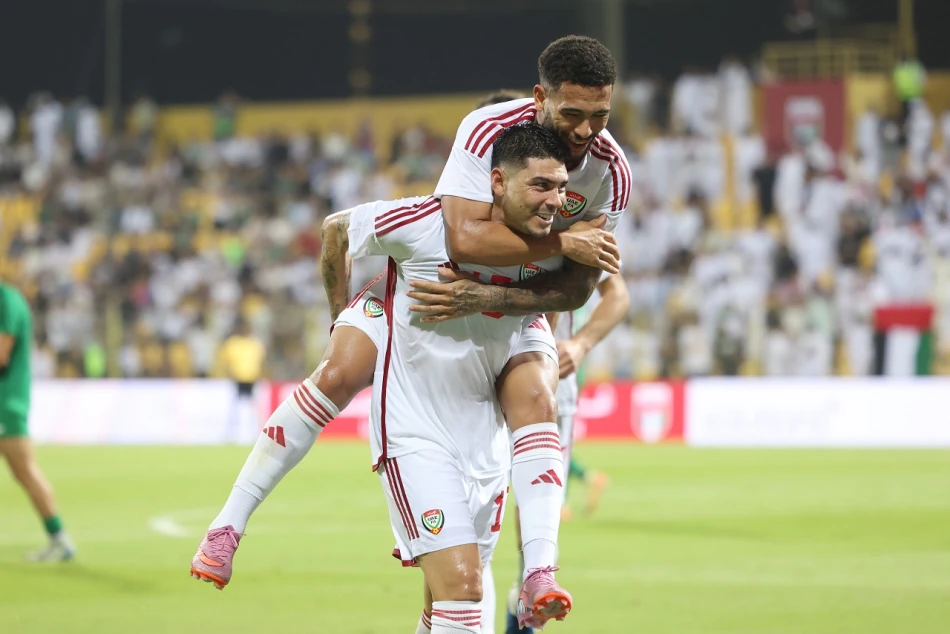
Syrian Eagles Narrowly Defeated in Friendly Match, Kozmín's Decisive Contribution
UAE National Team Stages Dramatic Comeback Against Syria in World Cup Preparation
The UAE national football team delivered a commanding second-half performance to overturn a 1-0 deficit and defeat Syria 3-1 in a crucial friendly match at Zabeel Stadium. The victory provides essential momentum as the team prepares for the Asian qualifying playoffs that will determine their path to the 2026 FIFA World Cup.
First Half Struggles Despite Tactical Ambition
Romanian coach Ovidiu Hațegan deployed an attacking formation that granted the UAE control over midfield possession, yet the team struggled to convert territorial dominance into clear scoring opportunities. The tactical approach highlighted a persistent challenge for many national teams in the region: translating possession into penetrative attacking play.
Ali Saleh emerged as the primary threat in the opening period, first unleashing a powerful free-kick that struck the defensive wall, then squandering a golden opportunity from a precise Caio Canedo cross. The most promising moment came through Alaa Zahir's thunderous strike that rattled the crossbar, demonstrating the fine margins that often decide international fixtures.
Syria Capitalizes on Defensive Lapse
Syria's opening goal in the 35th minute exposed the kind of defensive vulnerability that can prove costly in high-stakes qualifying matches. A well-timed through ball from Simon Amin, combined with goalkeeper Ali Khaseif's mistimed advance, allowed Mohamed Al-Salkhadi to slot home unopposed. The goal served as a tactical lesson about maintaining defensive discipline even when dominating possession.
Second-Half Transformation Signals Tactical Maturity
Hațegan's halftime adjustments proved decisive, introducing fresh legs and tactical modifications that immediately enhanced the UAE's attacking potency. The changes reflected modern international football's emphasis on squad depth and tactical flexibility during crucial matches.
Defender Sasa Ivković restored parity in the 62nd minute with a well-taken header from Ali Saleh's corner kick, demonstrating the importance of set-piece execution in international competition. The goal marked a turning point that showcased the team's mental resilience under pressure.
Clinical Finishing Secures Convincing Victory
The UAE's decisive period arrived in the final quarter-hour. Substitute Bruno de Oliveira earned a penalty after being fouled in the box, which Yahya Al-Ghassani converted confidently in the 78th minute. Gastón Suárez completed the comeback with a powerful finish from inside the penalty area in the 86th minute, capping a dominant second-half display.
World Cup Qualifying Stakes and Regional Context
This victory carries significant psychological weight as the UAE prepares for their World Cup qualifying campaign. The team's ability to overcome adversity mirrors successful qualifying campaigns by regional neighbors like Qatar and Saudi Arabia, who have demonstrated that Gulf nations can compete effectively on the global stage.
The UAE's qualifying journey begins with a challenging double-header against Oman on October 11 and Qatar on October 14, both matches scheduled at Jassim bin Hamad Stadium in Doha. These fixtures will provide a more accurate assessment of the team's World Cup credentials, as both opponents possess the tactical discipline and technical quality that characterize successful Asian qualifying campaigns.
Tactical Lessons and Squad Depth
The performance highlighted the importance of tactical flexibility and squad rotation in modern international football. Hațegan's successful second-half adjustments suggest the UAE possesses the tactical adaptability necessary for a sustained qualifying campaign. The contributions from substitutes like Suárez, Al-Ghassani, and de Oliveira demonstrate squad depth that could prove crucial during the condensed qualifying schedule.
As the 2026 World Cup features an expanded 48-team format, Asian nations have enhanced qualification opportunities. The UAE's convincing comeback victory positions them as legitimate contenders for one of Asia's additional qualifying spots, provided they can maintain this level of tactical discipline and clinical finishing throughout the qualifying campaign.
Most Viewed News

 Sara Khaled
Sara Khaled






